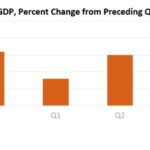By: David Etter, Managing Director- Loan Review Services
I have clients who received 6-month payment deferrals, and those are now maturing. The clients do not have the capacity to re-start normal payments due to the current economic conditions…what do I do?
Due to the multiple announcements of “relief” related to the COVID -19 economic impact, one of the biggest challenges in analyzing these situations is addressing multiple drivers simultaneously:
- How do we support our clients and local economy as part of our mission?
- What is the correct course of action from a credit protection/loss mitigation perspective?
- What do I call the results in terms of ratings, accrual status, past due status, etc.?
Remember – The above 3 drivers are not mutually exclusive.
Most of us are keenly aware that the Interagency Guidance from April 7, 2020 provided the “ground rules” for how to create a modification for a client to meet “short term” credit conditions and how to account for such a modification on your books.
- Premise of the modifications within the Interagency Guidance is that the need for payment relief is “short term.”
- Short Term was defined by the Regulators as not to exceed 6 months.
- Granted temporary relief to banks in areas such as reporting the modified loan past due on the Call Report.
The 6 months has come and gone. The COVID-19 economic impact has not and my Borrower needs additional relief.
The Interagency Joint Statement on Additional Loan Accommodations Related to COVID–19 August 3, 2020 states:
“In assessing an institution’s loan modification practices, examiners will review loan modifications to evaluate whether management is applying appropriate loan risk grades and making appropriate accrual status decisions on loans affected by the pandemic.”
Now what do we do?
This is where the impact of the CARES Act comes into play. Section 4013 of the CARES Act says that any modification completed by the earlier of December 31, 2020 or the 60th day after the President declares the National Emergency is over is not considered to be a TDR (Troubled Debt Restructurings). This appears to conflict with the April, 2020 Interagency Guidance. Since the CARES Act is an Act of Congress, it has the power of law and, therefore, supersedes regulatory guidelines.
What this means is that if you have to do another modification before 12/31/20:
- It does NOT need to be called a TDR.
- You DO have to risk rate it appropriately.
- You DO have to make a determination of accrual vs. nonaccrual status, in accordance with Call Report instructions and Regulatory guidance.
- If past due, it must be reported as such on the Call Report.






